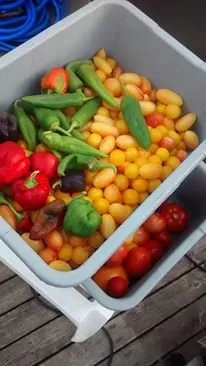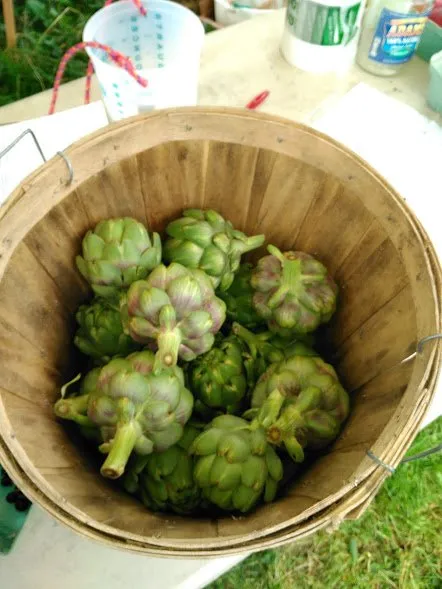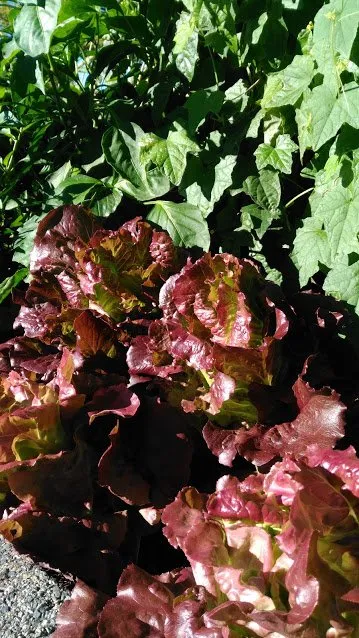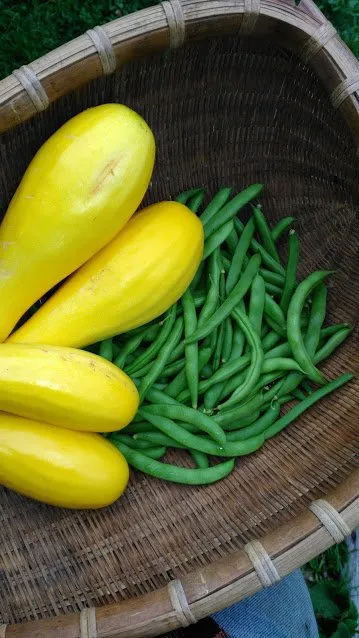Food is vital to our survival. Surrendering the responsibility of producing it to corporations that care more about their wealth, than your health is kind of crazy and irresponsible.
The importance of knowing where the food on our tables comes from is underscored by growing concerns from consumers of the safety and validity of the foods big business serves us.

Our current industrialized, plastic-wrapped, chemical-dowsed, gene-modified, commodity-speculating world of food production, robs our resources, pollutes our environment, taxes our finances and dilutes our nutrition.
Companies like Monsanto sprout perennial reports, skewed with corporate promises of cheaper, more nutritious food, but at what cost; clean air, clean water, our health?
Profits from the worlds top, six, major food corporations have grown, as profits for farmers producing food commodities have dropped dramatically due to overproduction. Lower profits coupled with higher labor, fuel and seed costs have forced food producers into large conglomerants, pooling resources to tighten their grip on our access to food.
Hungry for profits, companies merger with visions of completely controlling the worlds food supply from seed to table, losing sight of foods' function to nourish us.
Turning seven cents worth of GMO corn into five dollars of market value looks good on the books for shareholders, but nowhere in those books will one find scribbled a full accounting of the diminished legacy we're leaving behind.
While good for consumers, cheap food prices hide the true costs to our environment, water, taxes, health, energy, transportation and diversity through a labyrinthine web of government regulations, bought and paid for by the very culprits of corporate crimes our government agencies were appointed to protect us from.
The revolving door between agrochemical companies and governments spins like a carousel out of control and elected officials bully their way into line with meal tickets in hand, dizzy from spinning webs of influence into lining their pockets. When life itself is patentable and available for license, is it any wonder profits would take precedence over good sense.
Over production starves economies as easily as scarcity, by flooding markets with food that costs more to produce then farmers can sell it for with the result of squeezing the food chain of every last morsel of profit, until the farmer begs for financial relief.
Governments response is to float large farms with subsidies, literally purchasing commodities from farmers and giving it away to food banks.
In just one example, according to the USDA (or US-Duh):
The USDA recently provided a $20 million bailout to cheese producers and reports have surfaced that milk producers have been dumping excess milk on fields.
2016 agricultural reports confirm this is the "Least Profitable Year In 20 Years" across the board in all commodity markets excluding alcohol, which remains stable. I'll drink to that.
Guess who gets the bailout bill from government for this "cheap food"?
I'm not condemning giving to food banks. Our farm gives to local food banks and CSA's (Community Supported Agriculture). My point is the insatiable appetite of food corporations can't see past this fiscal quarter and I wouldn't trust them with my food or in my kitchen.

Our health and nutrition are not a subject of these corporations focus groups. Never have been and never will be, regardless of how they packaged it. A long history of documented deceit, corruption and payoffs can attest to this.
If consumption of their products cause health problems to their customers, then they will diversify into health care and pharmaceutical industries and are already quickly moving in that direction.
For more information on how pharmaceutical and agrochemical companies are morphing into one, read @corbettreport's post, BayerSanto: What The Merger REALLY Means for the control of our food supply.
Global food czars' parrot mission statements of "Feeding the world", ignoring that we can already feed the 10 billion people expected to inhabit this planet by the year 2050. Our problems are not rooted in limitations to our ability to produce food, but in failure to distribute it equitably. Manufacturing fears of future food scarcity leads us to relinquish control of our food supply to big government.
Today, now more than ever, growing your own food or supporting local growers that do, not only makes sense to regain control of what we are eating, but it's imperative to decentralizing this monopolistic control of our food choices.

Ninety percent of the food on a typical grocery store shelf has been grown and processed in ways that I'm certain your grandmother would not approve of, injected with hormones and insecticides, drenched in unpronounceable chemicals and genetically modified to survive applications of poisons, all in the name of larger markets and longer shelf lives.
I believe the longer the shelf life a food has, the shorter the life will be of one who consumes it. Technology is evolving faster everyday, but our digestive system keeps its' own pace.
Appealing to a government that has been financially compromised by big business, is like a having a sheep and two wolves decide what's for lunch. Growing your own food is a revolutionary act against this assault, a "revolutionary plot", if you will.
Starting A Revolutionary Plot
Supporting or producing local, organic food producers, shares similarities with cryptocurrencies, in that they both are decentralized.
Knowing your farmer and the source of your food or growing it yourself, is the only way to ensure it was produced in a wholesome manner.
Redirecting our food dollars to growers in the local community, weens us from the indifferent control of greedy corporations and subsidizes farmers who demonstrate good land husbandry and environmentally sound practices, while insuring us of good health for us and our environment.
The demand for locally produced food is growing, as more communities realize that our foods have been compromised and personal responsibility as usual, is the only real solution to restoring wholesomeness to our food supplies.
CryotoFood
Growing food to sell in your local community is a blessing, but trading it for goods and services provides for many of our needs on the farm. Money is good, but bartering is the icing on the cake.
In our community we trade food with our local bakers, dairies, butchers, mechanics, carpenters, bookkeepers and for labor on the farm; avoiding taxes and building connections you won't find at a big grocery store.

The empirical data I've collected on the farm contradicts claims that it is too hard to grow your own and much cheaper to buy it. This many be true for people living in cities, but even they can vote with their dollars.
I've lived in many metropolises and visited even more, but my choice to move to the country is mainly motivated by a deep realization that food, being the currency of a good life, is not something to be left in the hands of corporate pirates., just as our investment decisions should not be delegated to "experts" who's only goal is to make a commission.
Food is more than a commodity, more than an investment, more than something to gather around with friends and family. Food is a tangible asset and in the hands of good managers, a boon to the local economy and trade.
Steemit appeals to me for the same reasons, creating value that is determined by the community, not some Wall Street banker and his cronies.
Central banks share their monopolistic intentions with agrochemical companies, investing in furthering their control of how and what we eat. Local farmers and those who support them are the revolutionaries that seize back that control over the food system and keep it locally and securely in our hands.
Thanks for reading and following
